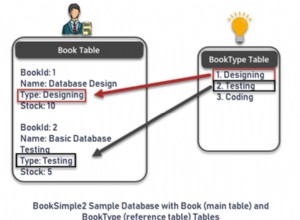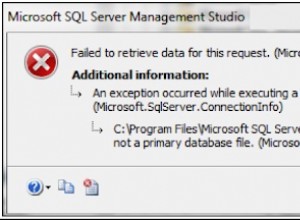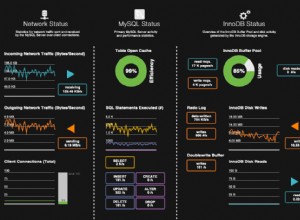J'ai modifié la version ci-dessus pour qu'elle s'exécute pour toutes les tables et prenne en charge les nouveaux types de données SQL 2005. Il conserve également les noms des clés primaires. Fonctionne uniquement sur SQL 2005 (en utilisant l'application croisée).
select 'create table [' + so.name + '] (' + o.list + ')' + CASE WHEN tc.Constraint_Name IS NULL THEN '' ELSE 'ALTER TABLE ' + so.Name + ' ADD CONSTRAINT ' + tc.Constraint_Name + ' PRIMARY KEY ' + ' (' + LEFT(j.List, Len(j.List)-1) + ')' END
from sysobjects so
cross apply
(SELECT
' ['+column_name+'] ' +
data_type + case data_type
when 'sql_variant' then ''
when 'text' then ''
when 'ntext' then ''
when 'xml' then ''
when 'decimal' then '(' + cast(numeric_precision as varchar) + ', ' + cast(numeric_scale as varchar) + ')'
else coalesce('('+case when character_maximum_length = -1 then 'MAX' else cast(character_maximum_length as varchar) end +')','') end + ' ' +
case when exists (
select id from syscolumns
where object_name(id)=so.name
and name=column_name
and columnproperty(id,name,'IsIdentity') = 1
) then
'IDENTITY(' +
cast(ident_seed(so.name) as varchar) + ',' +
cast(ident_incr(so.name) as varchar) + ')'
else ''
end + ' ' +
(case when UPPER(IS_NULLABLE) = 'NO' then 'NOT ' else '' end ) + 'NULL ' +
case when information_schema.columns.COLUMN_DEFAULT IS NOT NULL THEN 'DEFAULT '+ information_schema.columns.COLUMN_DEFAULT ELSE '' END + ', '
from information_schema.columns where table_name = so.name
order by ordinal_position
FOR XML PATH('')) o (list)
left join
information_schema.table_constraints tc
on tc.Table_name = so.Name
AND tc.Constraint_Type = 'PRIMARY KEY'
cross apply
(select '[' + Column_Name + '], '
FROM information_schema.key_column_usage kcu
WHERE kcu.Constraint_Name = tc.Constraint_Name
ORDER BY
ORDINAL_POSITION
FOR XML PATH('')) j (list)
where xtype = 'U'
AND name NOT IN ('dtproperties')
Mise à jour : Ajout de la gestion du type de données XML
Mise à jour 2 : Cas fixes lorsque 1) il y a plusieurs tables avec le même nom mais avec des schémas différents, 2) il y a plusieurs tables ayant une contrainte PK avec le même nom




